The Culture Of Tanzania
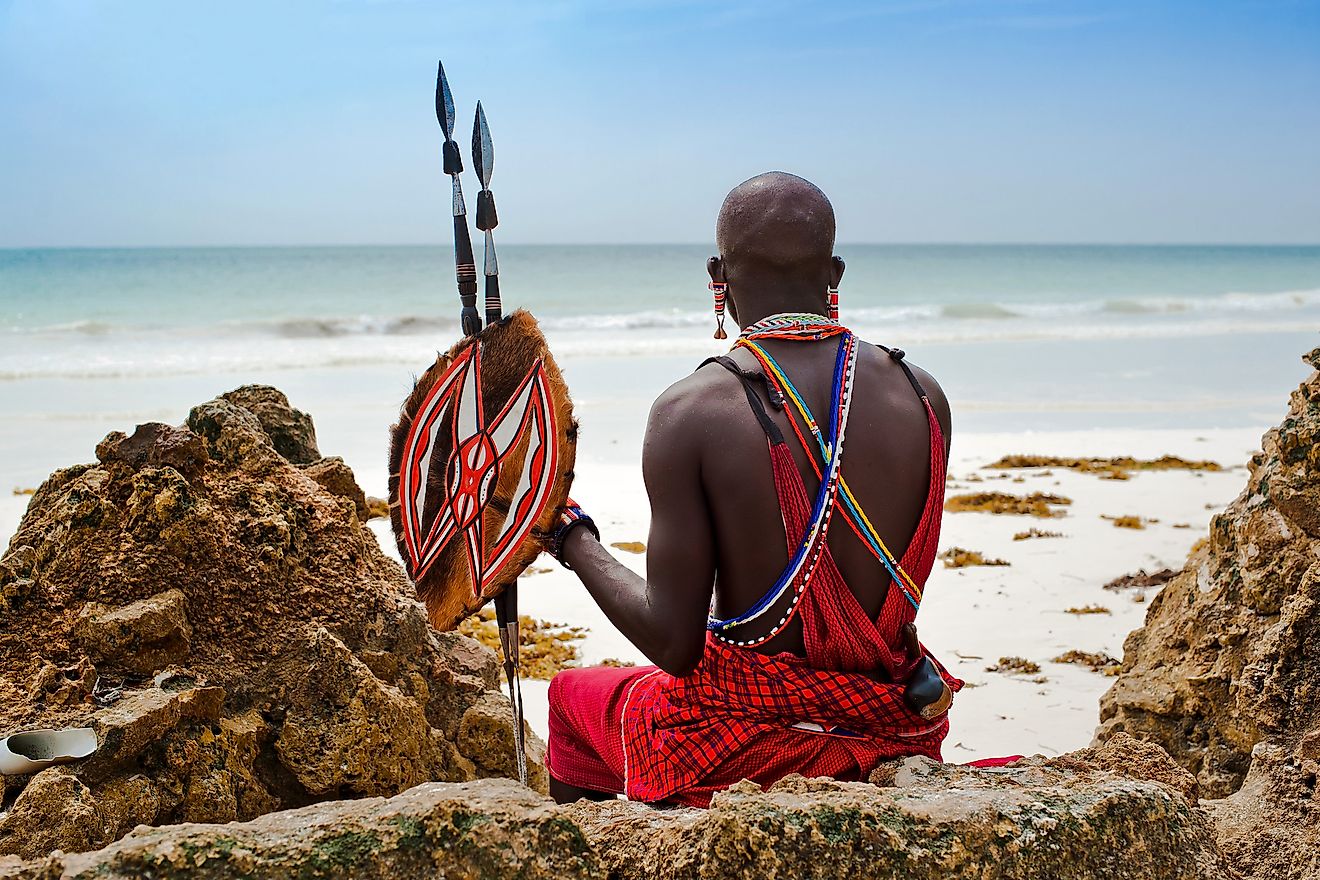
- Spicy dishes are popular in the coastal regions of Tanzania and coconut milk is generously used.
- Paintings of local wildlife and tribal life, tribal jewelry, intricately woven baskets, handcrafted home decor items, etc., are popular handicrafts in Tanzania.
- The various ethnic groups inhabiting Tanzania have their own distinct dance and music forms.
- Roles of males and females are usually well-defined in a traditional Tanzanian society, especially in rural areas.
The eastern African nation of Tanzania is famous for its great natural wealth. It is also one of the continent’s most culturally diverse places. The culture of the country is an amalgamation of the cultures of its resident tribes that number over 120.
Tanzania’s landscape varies throughout the country and includes long coastlines along the Indian Ocean, massive lakes, offshore islands, mountains, plateaus, and dense forests. The country also has a long history of settlement by people with various origins, including Arabs, European colonists, and other immigrants from various foreign lands. The country’s geography and history have also contributed greatly to its rich culture.
6. Religion In Tanzania
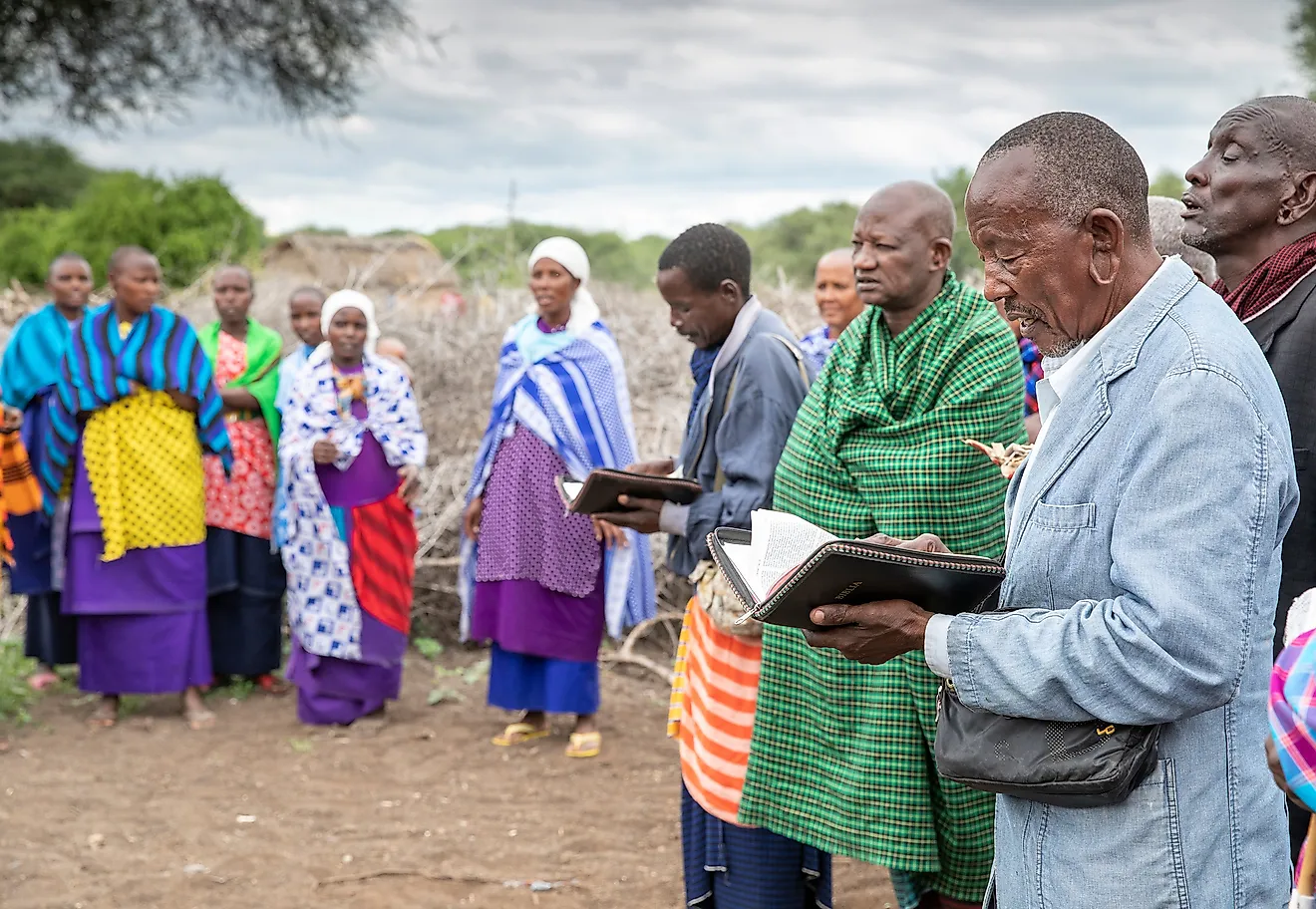
A majority of the Tanzanians are Christians. Muslims account for about 35.2% of the population. Only about 1.8% of Tanzanians adhere to folk religions. Many Christians and Muslims in the country blend their traditional rituals and customs with those of Christianity or Islam.
5. Tanzanian Cuisine
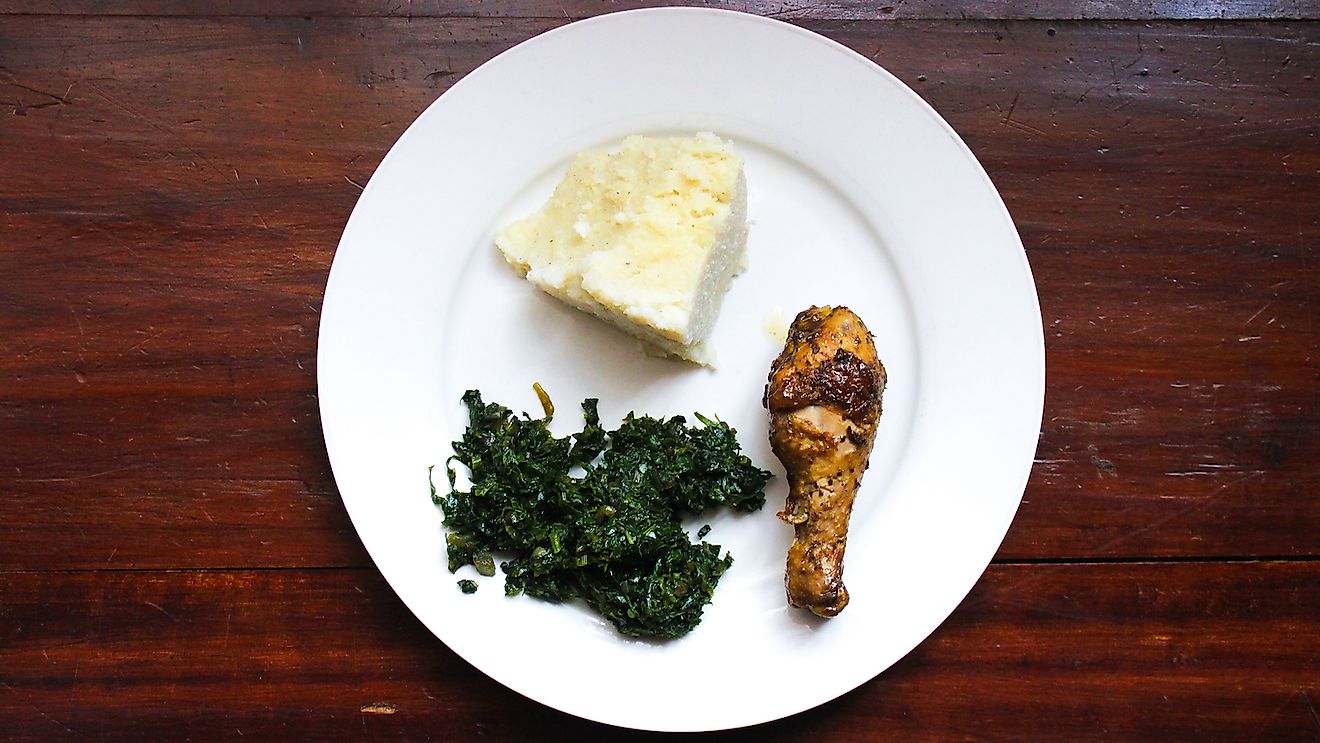
The cuisine in Tanzania is widely varied and distinct. Spicy dishes are popular in the coastal regions and coconut milk is generously used. In the interiors, rice and bread are part of the staple diet. Grilled meat and chicken, fish, plantains, cassava, beans, spinach, etc., are eaten. The kisusio, a soup prepared from boiled animal bones and meat, is consumed here. Coconut or groundnut rolls, rice cakes, dates, pan grilled grasshoppers, grilled gizzards, etc., are popular snacks.
Tea is usually taken with chapati or bread, and/or eggs for breakfast. Coffee is consumed in the evening. Various types of alcoholic drinks like Kilimanjaro beer, Serengeti beer, Banana Wine, etc., are produced in the country.
4. Literature And Art In Tanzania
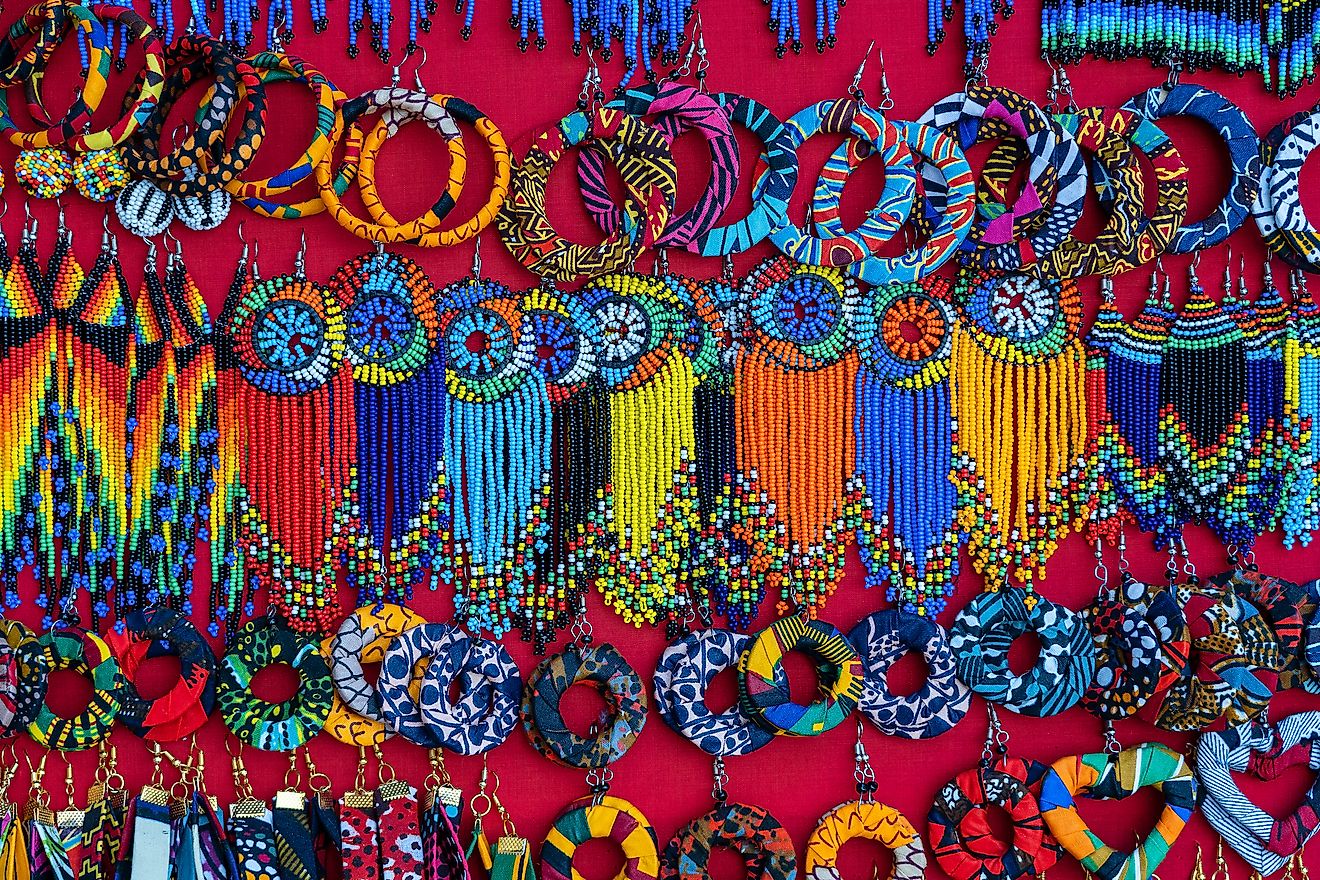
As most of the local languages of Tanzania are expressed orally, written literature in these languages is sparse. They are mostly limited to dictionaries, and some work published by Christian missionaries or researchers. Kiswahili, the national language of the country, however, has a rich history. Both prose and poetry have been published in this language.
The artisans and artists in Tanzania are primarily supported by the thriving tourist industry. Tourists love the exotic handicrafts of Tanzania and carry them back as souvenirs. The Makonde carvers of ebony are among the most famous artisans in the country. Paintings of local wildlife and tribal life, tribal jewelry, intricately woven baskets, handcrafted home decor items, etc., are popular among the tourists visiting Tanzania.
3. Music And Dance In Tanzania
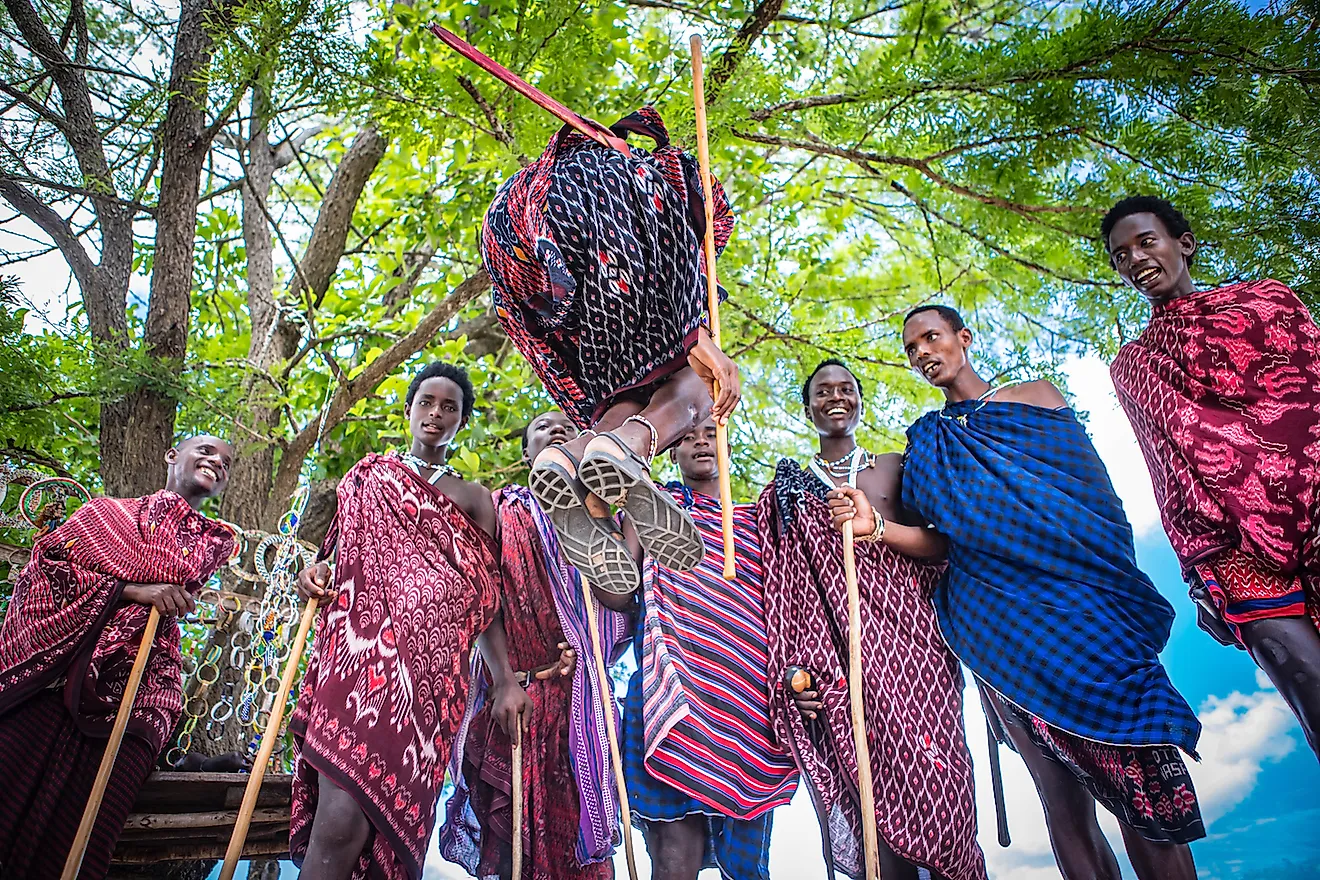
The various ethnic groups inhabiting Tanzania have their own distinct dance and music forms. Although such music and dance were confined to local celebrations of the tribes in the past, the government of Tanzania is currently trying to promote the same at national and international levels. Local artists are sent to international music and dance festivals to represent Tanzania. Cultural festivals held in the country are often accompanied by traditional tribal music and dance performances. Public service messages about health and social issues are often conveyed to the public via such performances.
2. Clothing
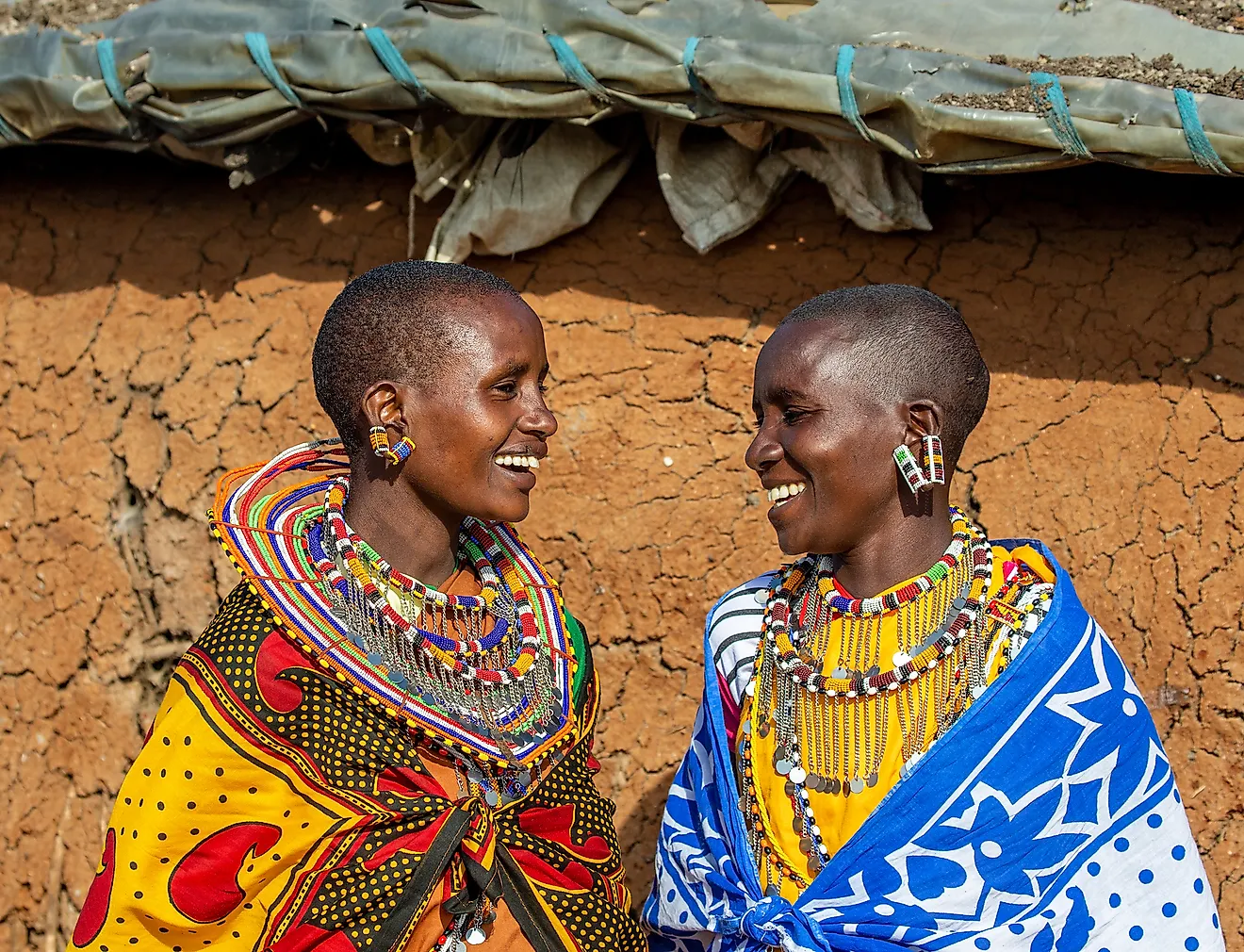
Western clothing is becoming increasingly popular in Tanzania, especially in urban areas. The tribes of the country have their distinct clothes, headgears, and body art forms. The kanga is a very useful piece of garment for the females. It is a vibrant rectangular cloth with elaborate designs. The cloth can be used to make slings to carry babies. It can also be worn as a head cover, dress, skirt, or even shawl.
1. Life In A Tanzanian Society
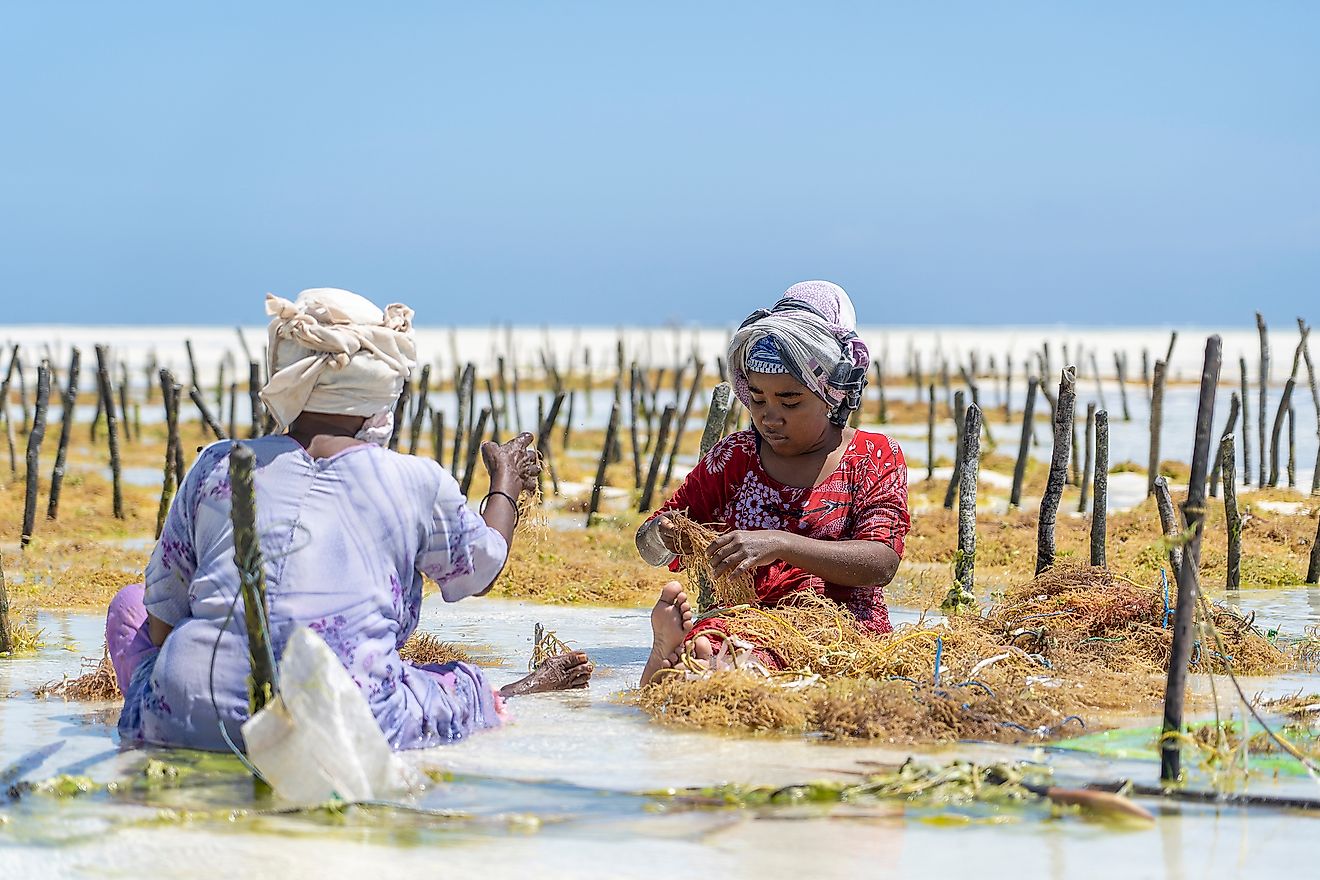
Roles of males and females are usually well-defined in a traditional Tanzanian society, especially in rural areas. However, many people in society are now beginning to question these traditional gender roles. Even still, generally males in the family are favored over females when it comes to inheritance with the exception of a few matrilineal tribes.
The customs and rituals of traditional marriages in a Tanzanian society vary by ethnic group. Generally, inter-clan marriages are not encouraged. In most marriages, the groom needs to pay a dowry to the bride’s family in exchange for the bride. The value of the dowry is negotiated between the two families.
Tanzanians, especially those in rural areas, live as extended families. The head of the family is usually the oldest man in the family. Children are raised by the parents with help from close relatives, neighbors, and friends.
Tanzanians discourage public show of affection and emotion. In urban places, however, boys and girls usually mix freely. Women in rural areas are usually subjected to stricter rules than men. They are not allowed to talk loudly, smoke, or disobey their husbands. Elders enjoy a privileged position in society and are respected for their wisdom and experience.











